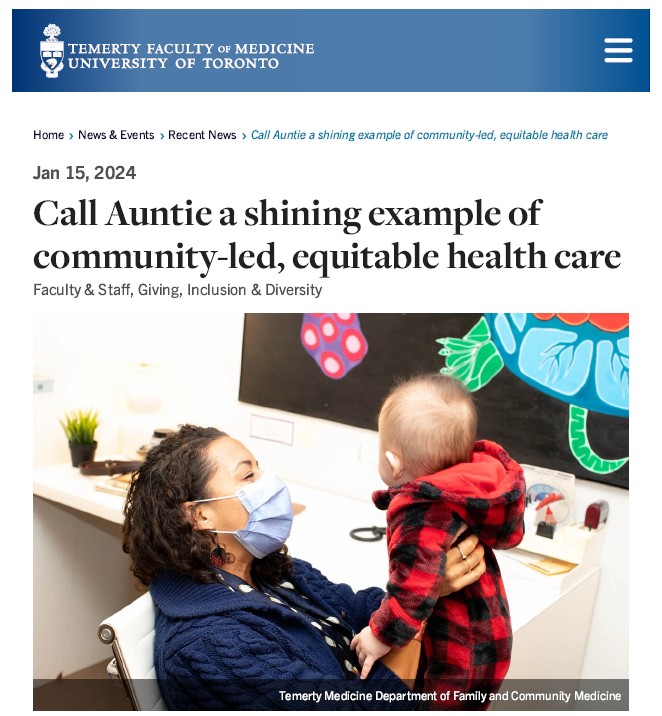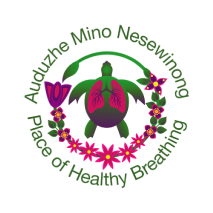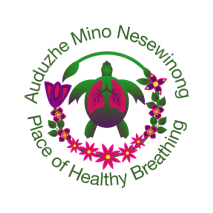
Call Auntie, a sexual and reproductive health service based in Toronto, is blazing a trail for Indigenous -led health care.
The initiative runs weekly clinics at the Toronto Birth Centre as well as leads ad hoc clinics elsewhere in Toronto. It offers patients wrap-around health support — from mental health to primary care, to connecting with specialists and social support programs — all grounded in Indigenous ways of knowing and being.
“When a community member comes to us, we look at their immediate needs and then work with them to determine what could work in the future and get them to that place, whether it’s a referral to a specialist or housing or anything else,” says Cheryllee Bourgeois, Exemption Métis Midwife at Call Auntie and Seventh Generation Midwives Toronto.
“A lot of the Indigenous community does not feel welcome in the healthcare system, so we’ve created an environment where they can feel safe and culturally understood, and then they can bridge into more ongoing care when they are ready.”
“We’re serious about being there for people as they need us,” says Dr. Suzanne Shoush, Indigenous Health Faculty Lead with the department of family and community medicine at Temerty Medicine. “The people in the client group go above and beyond to provide that support…” Read the Whole Story Here

